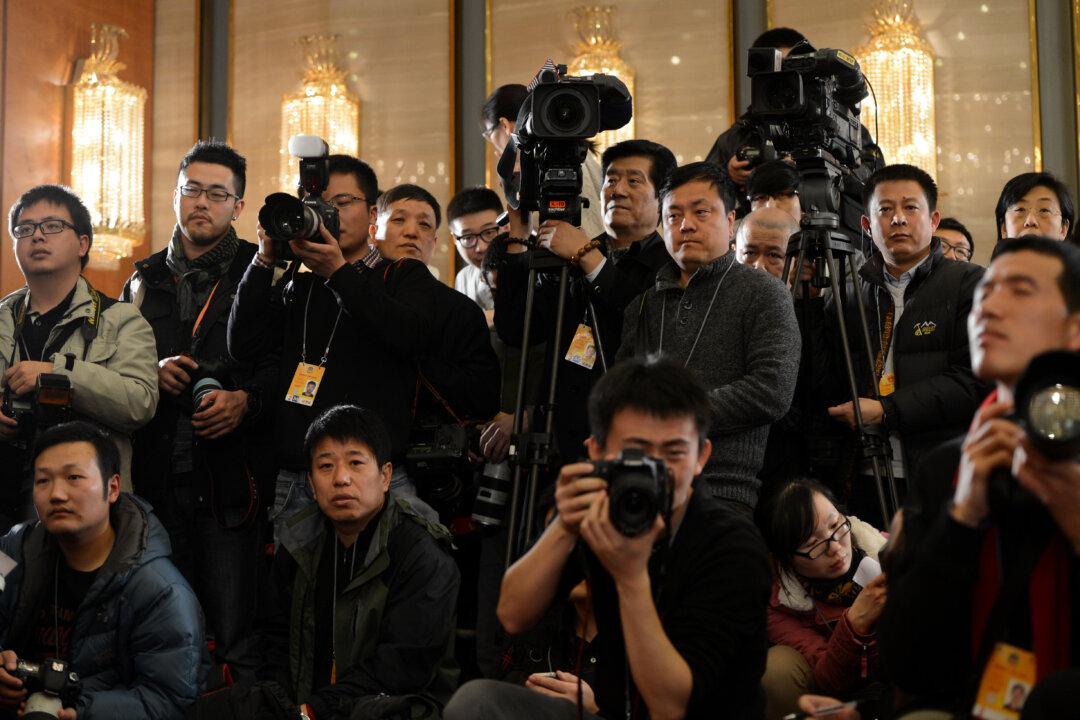The U.S.-based China expert He Qinglian is always interesting, but especially on the subject of China’s media. He Qinglian worked eight years as a journalist in China and has written a book about the control of media in China (published in 2008 in English as “The Fog of Censorship”), as well as numerous articles on the subject of the media in China. Here are a few nuggets drawn from Ms. He’s writings.
Two key points made by Ms. He will help someone understand how to read the Chinese Communist Party’s (CCP) media.
First, for anything that may be considered “bad news” such as disasters, stories involving public security or public safety, or corruption, the reality is usually much worse than what is reported. The CCP’s rule is to only tell the news in a way that always makes them look good.
For example, whenever there is a disaster or major incident, the CCP strictly controls the actual situation by reducing the death toll numbers, and minimizing the damage report, in order to demonstrate that the CCP is diligently taking care of people.
Second, the news is always reported from the CCP’s viewpoint. For example, when the news is about a high number of laborers being laid off, the issue is reported as if the CCP is concerned about serious unemployment.
Or when one local leader speaks out about the farmers’ issue, the story does not focus on the local leader. Rather, the story will claim the farmers’ issue became so big that the local leader was forced to pay attention to it.
Even when a senior official’s corruption has been revealed, the story is about the CCP’s success in cracking down on corruption, instead of the root cause of the problem.
Party’s Control
According to He Qinglian, the CCP’s control over media is “systematized” through laws, regulations, and statutory documents.
In controlling the media, the power of the CCP Propaganda Department surpasses that of the State Press and Publication Administration, He says.
The CCP deals with political issues as if they were non-political matters. No documents are issued; instead, communications are made through telephone calls or interior meetings. The contents of the meetings are never written, recorded, or exposed.
When it comes to media reports, He says, state-run media will not keep silent about certain issues as they did before. Rather, they will confuse the public by publishing “some lies mingled with partial facts.” This kind of propaganda mingled with partial facts is indeed more interesting than sheer lies.
The “China” constructed by the CCP-affiliated media is a far cry from the China perceived by rural or smaller-sized city dwellers, Ms. He says. The “China” exposed to the international community is purposefully shaped in the media by the communist regime.
Intelligence agencies of the CCP Public Security Bureau monitor the Internet and follow orders from some state security departments to arrest those who are charged with threatening state security for spreading damaging rumors.
With the popularity of the Internet, the CCP has developed the biggest firewalls in the world, such as the unusually costly “Golden Shield Project,” which aims to monitor public behavior.
Because the CCP uses propaganda to gain control over people’s thoughts, Chinese people have completely different concepts of universal values, like human rights, freedom, and democracy, Ms. He says.
For example, many overseas Chinese students, particularly those born after 1989, adopt skeptical attitudes toward the Western description of historical events in China, like the Korean War, the relationship between China and America, and the history of the CCP.
Translation by Rebecca Chen and Amy Lien.
